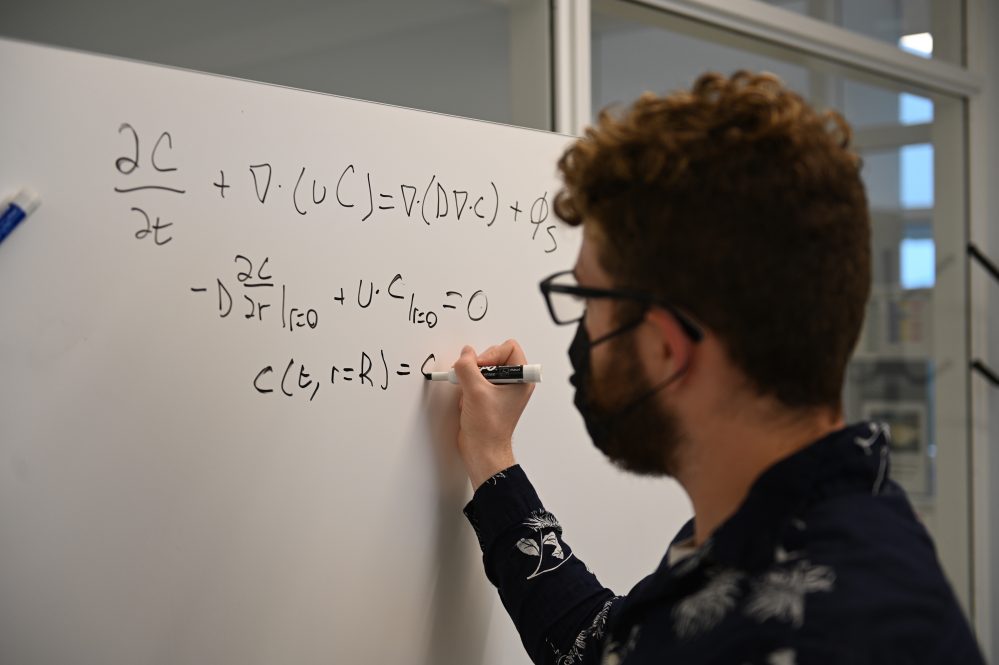UConn’s Office of Undergraduate Research each year provides Summer Undergraduate Research Fund (SURF) awards to support full-time undergraduate students in summer research or creative projects – an initiative that continues this year, despite the challenges presented by the COVID-19 pandemic.
SURF awards are available to students in all majors at all UConn campuses. A faculty committee representing various schools and colleges reviews the students’ project proposals, and SURF award recipients are chosen through a competitive process. Each SURF award winner is supervised by a UConn faculty member.
This summer, UConn Today once again takes a look at various 2021 SURF scholars and their work.
Name: Sam Degnan-Morgenstern
Hometown: Wallingford
Year: Rising Senior
Major: Chemical Engineering
Summer research project: Degnan-Morgenstern is working on the design of scientific machine-learning models of molecular transport in solid tumors with faculty mentor Matthew Stuber, an assistant professor in the Department of Chemical and Biomolecular Engineering.
Can you tell us about the research you are doing this summer?
I am studying drug transport in solid tumors using computational methods derived from physics. The overall goal is to optimize the models in order to give us physiological parameters so we can go in and intervene with drugs. We are basically using models to guide what drugs or dosing of drugs will better treat solid tumors.
How did you get interested in this research?
Last summer during the pandemic, I got interested in machine learning, and started doing some self-studying. At the same time, I was doing an internship working on lead optimization, which is basically when you have a drug candidate identified, or you’re looking to improve drug candidates. My work was trying to reformulate the drug to make it better. That was for anti-diarrheals for cholera patients.
During that experience, I saw how the process was very controlled with trial and error, and there was a lot of guess work. I am someone who likes computer science, math, and engineering and thought they could do it better. I became interested in how we can use computational techniques like machine learning and numerical analysis as a guiding hand for research to make it better. I joined the lab of my advisor, Dr. Matthew Stuber, and that is when I really started working on this project.
Has COVID affected your research?
Not really, because pretty much all of my work is computational, so I am doing it between my apartment and a lab on campus.
How is research as an undergraduate different from traditional classroom work?
A lot of the classroom work, especially in engineering, is about establishing a strong foundation in the subject necessary to be a good engineer. Within that contest, the end goal for students is to decompose a problem from the ground up, solving it from the principles of math and physics.
In my experience, research is a layer on top of this, building form the knowledge of the classroom and the available scientific literature. It is building a toolkit for attacking the real world problems that are at the forefront of human knowledge. For that reason, I really like research because you are constantly looking to develop new methods that allow you to navigate unchartered waters in a way that turns problem solving into a more creative effort because you are relying on your intuition.
What are you future plans?
I would like to go to graduate school to pursue my doctoral degree and stay within the space of studying problems at the intersection of chemical engineering, math, and computer science and applying state of the arts techniques to real world engineering problems.



